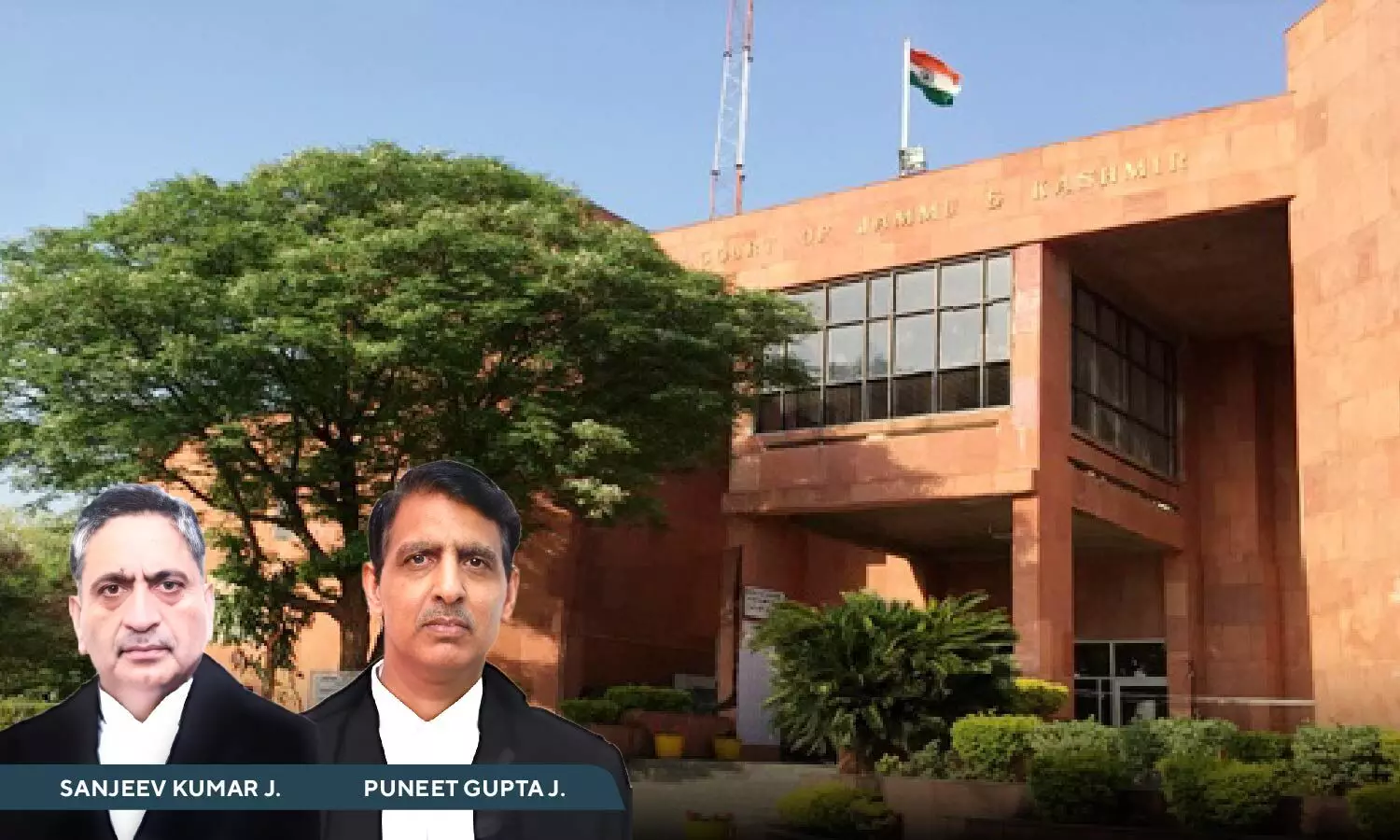
Failure To Sign Pleadings Only An Irregularity & Curable Defect; Would Not Entail Dismissal Of Application U/S 34 J&K Arbitration & Conciliation Act: J&K&L HC
 |
|The Jammu & Kashmir And Ladakh High Court has held that the failure to sign pleadings is only an irregularity and a curable defect which would not entail the dismissal of an application under Section 34 of the Jammu & Kashmir Arbitration and Conciliation Act, 1997 (the Act).
The Court in an appeal under Section 37 of the Act allowed the Union of India’s Appeal and set aside the Single Bench’s Order dismissing their Application under Section 34 of the Act. The Court held that Garrison Engineer, who signed the application under Section 34 on behalf of the Union of India, was an authorised officer under the law.
A Division Bench of Justice Sanjeev Kumar and Justice Puneet Gupta held, “Otherwise also, from a perusal of the application filed by the appellants before the learned Single Judge, it clearly transpires that the Union of India through Chief Engineer is also a party, though the application was signed by the Garrison Engineer. In that view of the matter, failure of the Chief Engineer to sign the pleadings, which were singed by the Garrison Engineer would only be an irregularity and a curable defect and would not entail dismissal of the application without providing opportunity to the appellants to correct the irregularity. The defect, if at all it has there, was curable and was not fatal to the maintainability of the application itself.”
DSGI Vishal Sharma represented the Appellant, while Advocate Zoya Bhardwa appeared for the Respondent.
Brief Facts
An agreement was executed between the Union of India and the Respondent containing an arbitration clause. Certain disputes arose between the parties and a sole arbitrator was appointed who passed an award against the appellants. The Union of India challenged the award under Section 34 of the Act through an application signed by the Garrison Engineer.
The Respondent objected, arguing that the Garrison Engineer was not a party to the arbitration agreement and thus unauthorised to file the application. The Single Judge upheld this objection and dismissed the application.
Court’s Reasoning
The High Court noted that the contract, in accordance with Article 299 of the Constitution, was executed by the Chief Engineer on behalf of the President. However, it held that the Union of India, as the contracting party, could file an application through any authorised officer, including the Garrison Engineer.
The Bench remarked, “Indisputably, the contract in question was made in the exercise of executive powers of the Union and, therefore, was rightly expressed to be made by the President. The Chief Engineer executed the contract on behalf of the President being a person duly authorized to do so.”
“The authority of the Chief Engineer to execute the contract containing arbitration clause on behalf of the President is not in dispute. We would, therefore, hold that notwithstanding a contract by the Union of India is made by the President and executed through its authorized officer, neither the president nor its authorized officer becomes party to the contract. The party to the contract shall only be the Union of India,” the Court explained.
Consequently, the Court ordered, “For all these reasons, we find merit in this appeal and the same is, accordingly, allowed. The impugned order passed by the learned Single Judge is set aside and the matter is sent back to the learned Single Judge for disposal on merits and in accordance with law.”
Accordingly, the High Court allowed the Appeal.
Cause Title: Union of India & Anr. v. M/s Des Raj Nagpal Engineers & Contractors (Arb App No.1/2022)